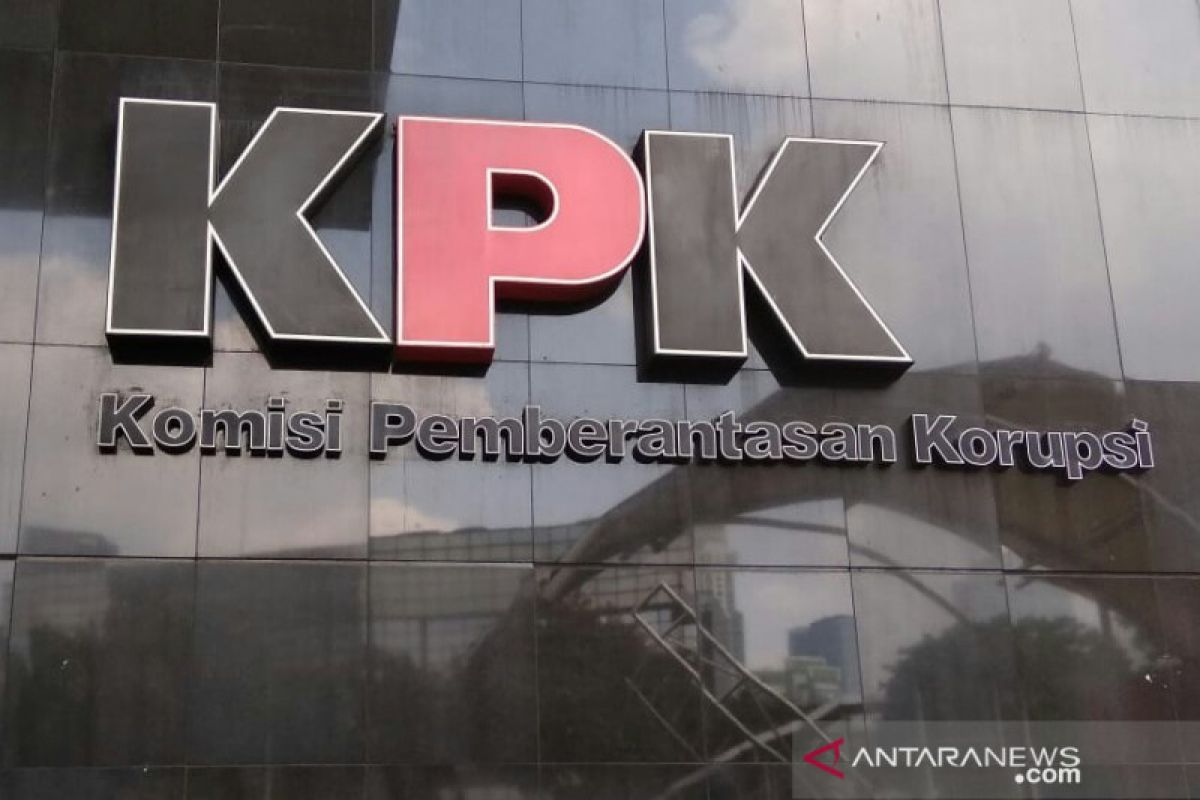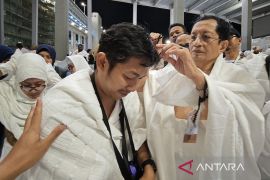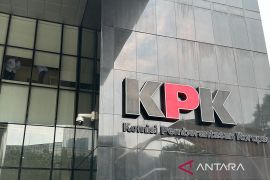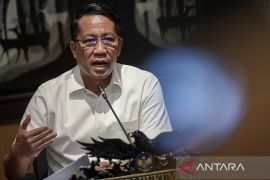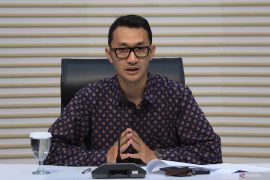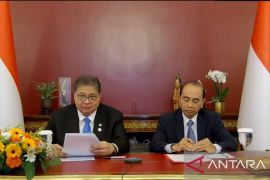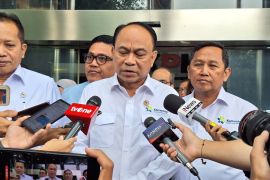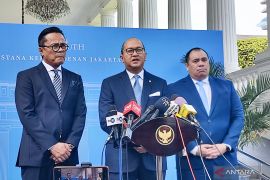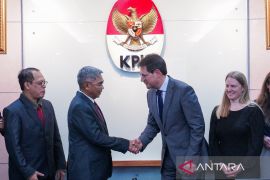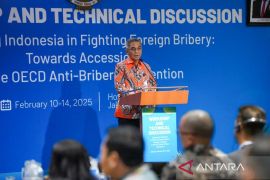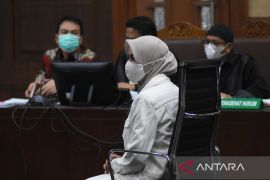The trio strategies are being implemented simultaneously and integrated with each other by involving stakeholders and all societal elements.
For the education strategy, the KPK implements various programs to support the implementation of anti-corruption education in each educational unit, including through the National Coordination Meeting on Anti-Corruption Education.
On December 7, 2021, the KPK held the National Coordination Meeting on Anti-Corruption Education as part of a series of activities to commemorate the 2021 World Anti-Corruption Day themed "Collaboration to Build Anti-Corruption Culture."
The KPK encourages joint commitments from related stakeholders to implement anti-corruption education through developing integrity in the education ecosystem to eradicate corruption.
Related news: Collaboration indispensable in nurturing anti-corruption: Minister
The National Coordination Meeting for Anti-Corruption Education is also a forum to accommodate aspirations and innovations to bring commitments and joint action plans related to anti-corruption education.
In 2018, the KPK had conducted similar activities that resulted in a Commitment to the Implementation of Education and Anti-Corruption Character signed by the KPK chairman along with the education and culture minister, research and technology minister, religion affairs minister, and home affairs minister.
This commitment was then followed up with the issuance of regulations covering the implementation of anti-corruption education both at the central and regional levels.
Based on the KPK's data as of November 2021, several regulations had been issued at the regional level, with 353 Regional Head Regulations comprising 17 regulations at the provincial or high school level as well as 76 regulations at the city-level and 260 district-level regulations for the elementary, junior high school level.
Related news: Corruption hinders Indonesia's national development: VP
Commitment
Deputy Chairman of KPK Nurul Ghufron stated that the joint commitment aimed to improve anti-corruption education through mutual cooperation of teachers, lecturers, students, and all elements of the nation to form an educational unit that is not only smart but also dedicated.
Through commitment and a common vision in eradicating corruption, the country will be able to create a future with integrity, Ghufron added.
He also conveyed that the KPK, through the National Coordination Meeting on Anti-Corruption Education, had tasked the Ministry of Education and Culture and the Ministry of Religion Affairs with cultivating the values of integrity. Both ministries have the authority to manage education.
Meanwhile, the KPK also handed over the program to the Ministry of Home Affairs, with the authority to manage official schools, and to the Ministry of Empowerment of State Apparatus and Bureaucratic Reform, in charge of the management of State Civil Apparatus (ASN).
The joint commitment of regulators and stakeholders held at the National Coordination Meeting on Anti-Corruption Education aims to expand the implementation of anti-corruption education at primary, secondary, higher, and official education levels and to strengthen the effectiveness and impact of anti-corruption education.
The goal can be achieved by building integrity of the education ecosystem as well as integrating data and information on the implementation of anti-corruption education and integrity development.
Related news: Public perception of corruption eradication is not good yet: Jokowi
Reminder
At the National Coordination Meeting on Anti-Corruption Education, Ghufron also reminded that people with higher education did not guarantee that they were free from corruption. Based on KPK's records, 86 percent of the corruptors were highly educated.
However, people with higher education should have high integrity, he affirmed.
Ghufron alluded to Article 1, paragraph (1) of Law Number 20 of 2003 on the National Education System which states education is a conscious and planned effort to create a learning atmosphere and learning process for students to develop their potential to have religious and spiritual strength, self-control, personality, intelligence, noble character, and skills required for themselves and the society, nation, and state.
Out of the six elements of the educational goals, four are related to the values of integrity, although the implementation was still quite low.
He emphasized that the purpose of education was not just to serve as a bridge to find a job or earn money but also to build a person's personality to become better.
"There must be a spiritual side, self-control, a noble character, and personality. However, nowadays, our education system only measures knowledge and skills. This is resulting in smart people with no integrity, akin to the corruptors, who graduated from universities," he remarked.
Related news: KPK should make improvements to corruption eradication methods: Jokowi
Changes
Meanwhile, Education, Culture, Research, and Technology Minister Nadiem Anwar Makarim pointed out that corruption was one of the biggest challenges faced by Indonesia. The government had made several regulations to overcome corruption, but many cases still kept emerging, he stated.
To this end, it is necessary to change the mechanism of corruption handling. Hence, the government should not only handle cases but also take preventive measures through anti-corruption education, according to Makarim.
The minister also spoke about ways in which schools and universities can help to eradicate corruption through the application of preventive measures.
Makarim emphasized that Indonesian educational units should start inculcating the values of integrity in students and work toward ensuring they have the Pancasila morale and possess an intelligent character rather than just producing graduates, who are smart in academics.
These changes had become a priority in Early Childhood Education (PAUD) for high school and vocational school students to encourage them in actualizing Pancasila values through project-based learning methods.
Makarim drew attention to several types of learning about morality, Pancasila, and integrity. However, if the three of them were not implemented, the values of integrity would not be able to be passed forward to the next generation.
As for the university level, the minister remarked that an Independent Campus program (Kampus Merdeka) was in place to encourage students to conduct activities outside the campus. The students are able to learn from the community and contribute to the social project in Indonesia, both teaching in schools and contributing to social projects in the outermost, remote, and underdeveloped (3T) areas in Indonesia.
Through such approaches, students can understand their role as the nation's next-generation, not only as people looking to be successful but also as a social mission to build Indonesia with high integrity.
Related news: Women play vital role in enhancing anti-corruption culture: minister
Important role
Minister of Religious Affairs Yaqut Cholil Qoumas emphasized that education plays an important role in changing behavior. Education is not only a transfer of knowledge but also a medium for internalizing values to become a good tradition.
Some important values to be taught to students related to anti-corruption education encompass honesty, sincerity, discipline, responsibility, and empathy.
Qoumas noted that several strategies to teach anti-corruption education were integrated into education in schools and madrasahs.
The first approach is through insertion. This method must become a common vision of teachers and lecturers to inculcate good values, such as honesty and fairness, among their students.
Honesty must be included in all aspects, right from encouraging students to always being honest while taking tests or being disciplined at school.
Second, integration in subjects, with the substance of moral education. He affirmed that civic and religious education were the most relevant subjects to deliver integrated values in education, albeit it was possible that other subjects could also serve the same purpose.
In religious education, these anti-corruption values are integrated into the subjects of the Qur'an, hadith, and fiqh without having to mention anti-corruption education. Likewise, in other religious subjects, the most important aspect is the substance of education, Qoumas remarked.
Through anti-corruption education, the next generation is expected to have integrity and the ability to build an anti-corruption culture in everyday life.
Related news: First 2022 G20 Sherpa Meeting held with strict health protocols
Related news: Jakarta Gov't, High Prosecutor Office to offer night-time vaccinations
Editor: Fardah Assegaf
Copyright © ANTARA 2021
